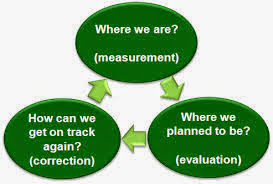Introduction
Project Management has evolved itself in
the last few centuries. In the bygone era there were number of complex projects
which were tackled with simple methodologies and right techniques. The thumb
rule of managing complex projects is the same even in the 21st century;
it is just about tapping the right management skills, knowledge and tools.
What makes a project complex?
The numbers of variable components which
are involved in the project are the factors which make a project complex. The
complexity means the number of components involved in the project and the
process of planning for those components at the lowest level of detail.
Uncertainty is also a factor while deciding about the complexity of a project.
There are capability attributes and project
specific attributes which decide on the complexity of a project.
Capability
attributes of a project are related to the overall
capability of the project which amounts to
·
Leadership style and
behavioural aspects of the project manager and the team members like focus,
vision and courage.
·
Experience of the team and
track record
·
Novelty in the technology you
are using
·
Flexibility and creativity
·
Risk appetite and tolerance
·
Internal and external factors
Project
specific attributes are related to the maturity and
stability of the project
·
The triple constraint, scope,
cost and time
·
Rules and regulation
·
Stakeholder geographies and
number
·
Organizational stability
These factors contribute to the complexity
and when you are aware of the root of complexity, the way to tackle it would
seem easy too.
According to a survey conducted by ProjectManagement Institute (PMI,USA) it is concluded that highly complex projects
have been using the same management techniques as followed for managing simple
projects. The organization possesses same level of maturity while handling
complex projects.
There are bound to be some secret
ingredients which are beyond these simple methodologies, yet help to manage
complex projects with élan.
Techniques to handle complexities of the project
Developing a robust methodology:
The mantra of a successful project lies in
creating a project specific methodology. There are frameworks established by
not for profit organizations. Clues can be taken from those frameworks and a
robust methodology can be developed to handle the primary and secondary
constraints effectively. Developing a way to reach the goal is half way done;
communicating the intricacies and dependencies of the methodology to all the
possible stakeholders holds the key to success of the complex projects.
Creating an inclusive project management culture
Human behaviour is the most important
aspect of project management. It is one of the seven conflict generating factor
in the project. Engaging stakeholders in efficient manner, coordinating with
them on important issues and as mentioned above, communicating each aspect of
the project may prove beneficial. The management of a project has to be
inclusive of the entire bunch of the stakeholders as it would create a kind of
cohesiveness among the project team members (working, non-working) which could
attribute greatly to the project’s success.
Developing the next line of leadership
You can develop capability of your project
through developing the next line of leadership. Building leadership skills and
mentoring your subordinates can create a healthy environment at a project place
reducing conflicts. It also enhances the capacity of project team to handle
uncertainties.
Effective Communication
Communication Management is one of the most
important knowledge areas in project management. Managing communication comes
later than identifying stakeholders. It is very crucial to identify
stakeholders and their impact, interest and influence on the project. Furthermore,
engaging stakeholders efficiently using stakeholder analysis and other tools is
useful for the benefit of the project.
Foresight for risk
Organization’s risk appetite plays
important role in handling complex projects. Project’s risks are those
uncertainties which may create a huge mayhem in your smooth sailing project. A
project manager should be well equipped with risk management strategies to make
a project risk tolerant.
In case of simple or complex projects going back
to the basics of project management fundamentals and equipping yourself with
relevant tools are the two essentials which along with the factors mentioned
above have contributed largely to the success of the complex projects.| PMPCcertification Baltimore |
